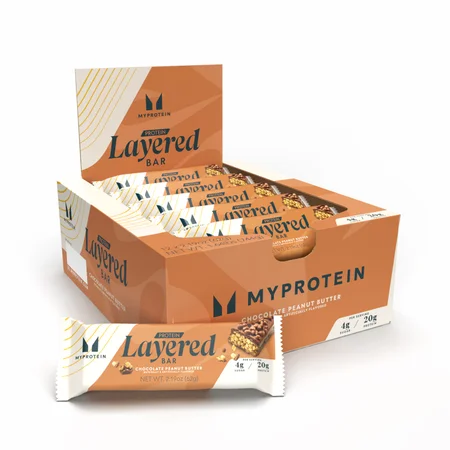
For many people Carbohydrates are viewed as the cause of weight gain and this can be a real concern for a number of people. Despite the fact that information regarding this phenomenon is often misguided, it is entirely possible.
Often, carbohydrates are over-consumed, coupled with a lack of energy demand for them, resulting in unwanted fat gain. Alas, there are ways to shuttle carbohydrate intake towards being stored in the muscle, rather than contributing to unwanted fat accumulation.
What Happens To Carbs When Consumed?
When consumed, carbohydrates have a number of possible fates. Shortly after digestion begins, consumed carbohydrates are broken down and converted to what is called glucose. This is a form of carbohydrate that can be broken down further for energy called adenosine triphosphate or ATP for short. This is a primary energy source for the human body.
This glucose can then either be used immediately for energy, stored in the muscle in a different form, called glycogen, or finally, stored in fat tissue and later converted into fat.
Contrary to popular belief, carbohydrates are really only stored and converted to fat, when it is over consumed, relative to the needs of the body for energy and replenishment of glycogen in the muscle.

How Can You Encourage Carbs To Be Used In Muscle?
? Exercise
The number one measure that can be taken to ensure carbohydrates are sent to muscle is to exercise. In particular, higher intensity and higher volume (weight x reps x sets) exercise.
By exercising at a higher intensity and with a higher volume, you ensure that you are utilizing more muscle glycogen for energy. This in turn, causes consumed carbohydrate to be more likely to be sent towards muscle.
When muscle glycogen is used in exercise, a response known as "GLUT-4 translocation" occurs. GLUT-4 is what is known as a glucose transporter, which means that it transports glucose, from the blood into the muscle.
When you contract the muscle and use glycogen for energy, these GLUT-4 transporters are transported to the membrane of your muscle cell, which allows them to then transport the glucose to the muscle to be stored for later use.
? Short-term carb restriction
Continuing with the exercise section, you can also perform exercise in a carb-fasted state. By exercising with a high volume of exercise after restricting carbohydrates, you can ensure that you are depleting the existing stores of glycogen in your muscle.
This will further increase the sensitivity that your muscle cells will have to taking up ingested carbohydrate.
? Moderating overall carbohydrate intake
Carbohydrates really only get stored and converted to fat tissue when they are over consumed, relative to your body's energy demands.
This means after you've filled muscle glycogen and used the carbohydrate for other energy demanding processes, the chances of your ingested carbohydrate being converted to fat increases. You should consider monitoring your carb intake based on your activity level.
If you are training a lot, at a high intensity, you may be more likely to use the carbohydrate for energy and muscle glycogen replenishment, than if you have a lower amount of exercise.

Supplements To Send Carbs To Muscles
? Isoleucine
One of the branch chained amino acids, Isoleucine has been shown to increase cellular uptake of glucose. Interestingly, this BCAA acts slightly differently than Leucine and Valine, which due to the pathways they activate, actually reduce glucose uptake. Isoleucine on the other hand acts in a different manner that increases uptake into the cell.
? Berberine
Berberine is also another promising supplement to use for glucose disposal into the muscle. However, there are a number of things that must be noted:
1. Berberine activates an enzyme named AMPK, which is a direct inhibitor of protein synthesis. It is suggested to limit use around the workout, or working out intensely enough to supersede the negative effect of AMPK on muscle building.
2. Berberine has a low absorption rate. This seems to be due to something called P-Glycoprotein. You should consider consuming either milk thistle or capric acid (found in coconut oil) to potentially increase the amount of berberine that is actually absorbed through the intestine. Try cooking with coconut oil.

Take Home Message
Carbohydrates can indeed contribute to unwanted weight gain, but really only when consumed in excess coupled with a lack of exercise. In order to ensure that the carbohydrates you do consume are used where you want them, consider monitoring your total intake and consume the majority of them pre and post workout.
After moderating your diet and exercise routine, consider looking into supplements such as Iso-Leucine and berberine to help shuttle glucose towards the muscle in an efficient manner.

References
Bernard, J. R., Liao, Y., Hara, D., Ding, Z., Chen, C., Nelson, J. L., & Ivy, J. L. (2011). An amino acid mixture improves glucose tolerance and insulin signaling in Sprague-Dawley rats. AJP: Endocrinology and Metabolism,300(4). doi:10.1152/ajpendo.00643.2010
Dong, H., Wang, N., Zhao, L., & Lu, F. (2012). Berberine in the Treatment of Type 2 Diabetes Mellitus: A Systemic Review and Meta-Analysis. Evidence-Based Complementary and Alternative Medicine,2012, 1-12. doi:10.1155/2012/591654









